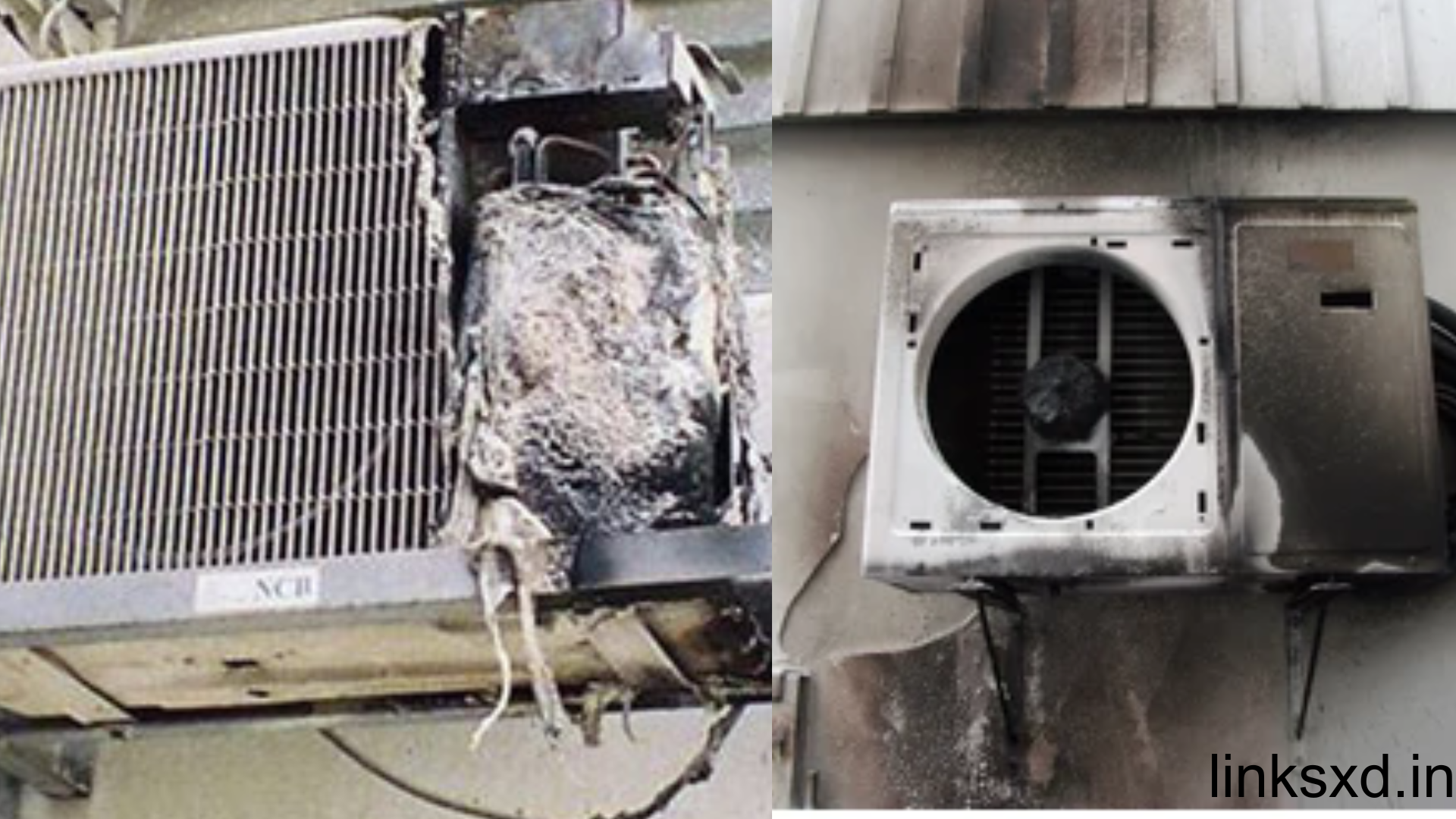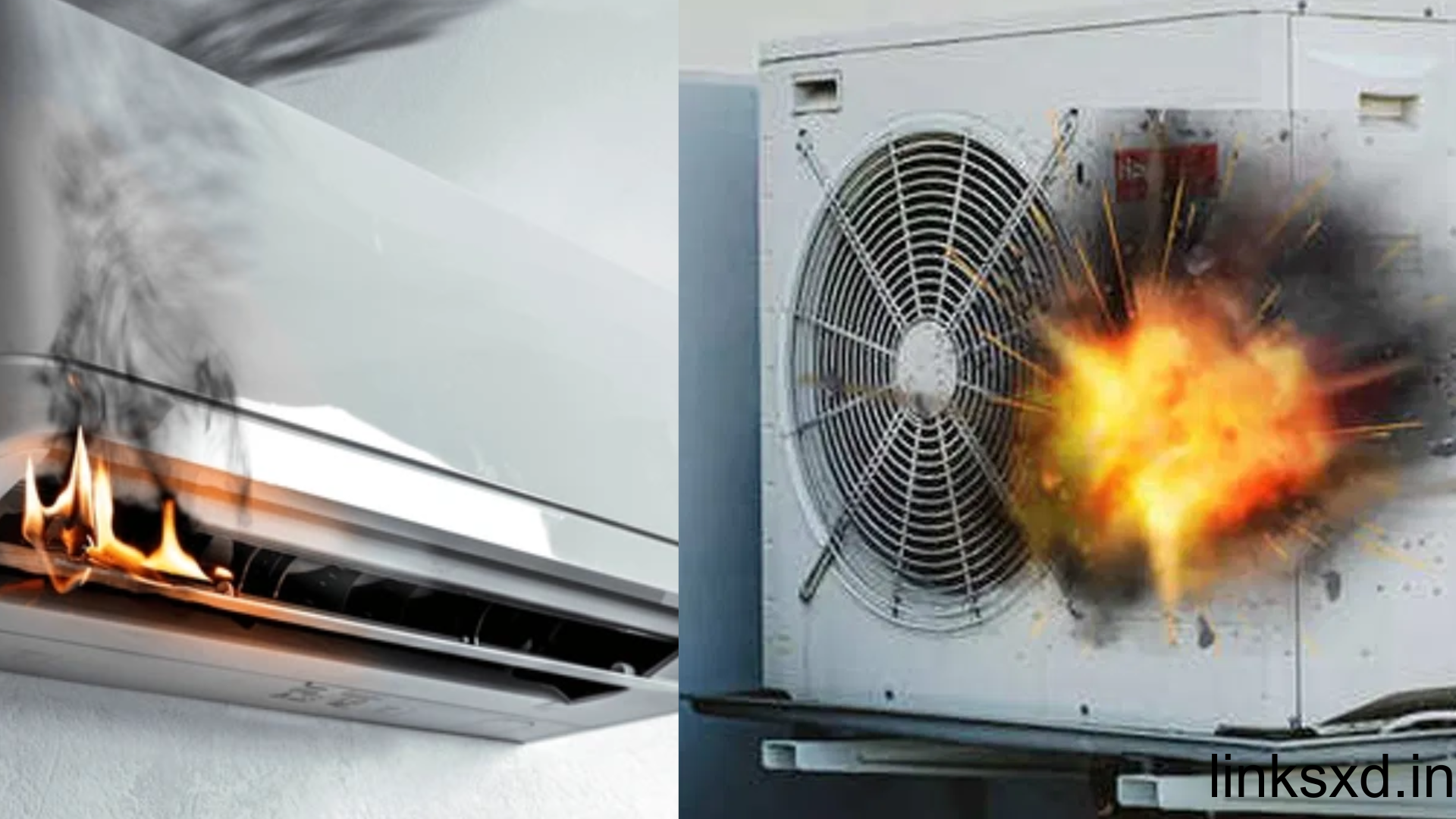AC Caught Fire
An AC explosion at a garment factory in Noida caused fire to break out on both floors, but was extinguished quickly thanks to efficient firefighting systems. Regular inspection and maintenance can help avoid AC fires or explosions from occurring.
Air conditioners rarely explode, but certain circumstances could increase their chances of doing so. Here are some major causes:AC Caught Fire
AC Caught Fire 1. Overheating
Overheating occurs when your air conditioning unit’s wires and electrical devices become overheated, potentially burning off insulation off of wires and leading to fire on contact. If this occurs in your unit, contact a technician as soon as possible so a proper assessment can be made.
Filters and coils clogged by dirt restrict airflow, forcing equipment to work harder and overheat more quickly. Regular cleaning is the best way to maintain peak performance from your unit.
Improper wiring can create sparks that cause fires in older buildings with outdated wiring systems. Installing a surge protector may help mitigate this risk.AC Caught Fire
Faulty capacitors can lead to fires if they overheat, so annual inspections may help prevent such incidents from arising.AC Caught Fire
Human error is another significant contributor to air conditioning (AC) fires. To reduce risk, be wary of keeping flammable items near the unit, using inappropriate extension cords, and overloading outlets – these simple mistakes could prevent most AC fires.AC Caught Fire
Additionally, it’s advisable to turn off your air conditioner during peak electrical usage hours in order to conserve power usage. Also remember not to use larger fuses or place coins under them as this could cause the circuit to overheat and spark fires.AC Caught Fire

AC Caught Fire 2. Dirty Condenser Coil
According to the National Fire Protection Association, over 7000 air conditioning unit-related fire incidents took place in 2010. These fires claimed 29 lives, resulted in hundreds of injuries, and caused property damages totalling millions. Most incidents took place during June, July and August when temperatures peaked; most fires could be linked back to dirty condenser coils which overheated or caught fire due to flammable debris accumulation.AC Caught Fire
Condenser coils are part of your air conditioner’s cooling system and serve to absorb excess heat before dissipating it outside. There are two coils in an AC, with the second located inside; over time they may collect dirt or other debris, potentially hindering airflow through its system.AC Caught Fire
An air conditioner with a dirty condenser coil reduces its efficiency, forcing the unit to work harder and for longer cycles in order to cool your home or business, increasing energy consumption while restricting air flow and possibly leading to overheating issues. You can maintain clean coils by limiting debris accumulation. A professional should perform regular maintenance to prolong its lifespan – saving both money and extending system lifespan.AC Caught Fire
AC Caught Fire 3. Faulty Electrical Connection
AC compressors are under tremendous strain and can, under extreme circumstances, explode if they break down catastrophically. An explosion can create loud noises and disperse debris similar to an actual fire; however, actual AC explosions are extremely rare events.
Electrical issues and improper connections are often the source of AC fires, leading to sparks that land on something flammable and ignite. A regular maintenance plan and understanding how to prevent fires is key in protecting yourself against future disaster.
Make sure that your air conditioning unit is plugged in securely, with its cord unwrapped from anything or hidden under carpeting. If it is connected via an extension cord, consider upgrading to permanent electrical connections instead. Never increase fuse sizes or put a penny under them when they trip; that is simply warning signs indicating there may be something amiss that needs addressing immediately.
Another potential risk to ACs is using the incorrect refrigerant, such as freon or R410a Puron, for your AC’s needs. Since different AC models require specific types of refrigerants, using one that’s incompatible can lead to overheating or explosion. Freon used to be popular but now non-flammable R410a Puron should be used instead if your system has been using wrong gas type for too long. If your air conditioner has been filling up with incorrect refrigerants instead, make changes immediately so your air conditioning won’t overheat or explode!

AC Caught Fire 4. Gas Leak
An air conditioning unit’s connection to your home’s gas line may develop a crack or rupture, leading to gas leakage. Other possible sources for gas leakage may include malfunctioning appliances like boilers and cookers as well as damaged pipelines supplying natural gas to your home. When suspecting any potential gas leak, opening windows and doors to ventilate your home is recommended; if strong odors are detected it is also important to call your utility company as quickly as possible from a safe location; in any instance of severe symptoms seek medical assistance as soon as possible.
Gas leaks can also lead to carbon monoxide poisoning in your home, potentially leading to unconsciousness or death. When experiencing a gas leak, symptoms could include:
If you notice any of these symptoms, it is imperative that you leave your home immediately and contact a plumber to repair the leak. Any electrical appliances or lights could create sparks which ignite leaked gas leaks; additionally, seeking for its source could expose you to harmful vapors; instead, open all doors and evacuate immediately as remaining indoors will allow leaking gas to accumulate further and cause an explosion.



